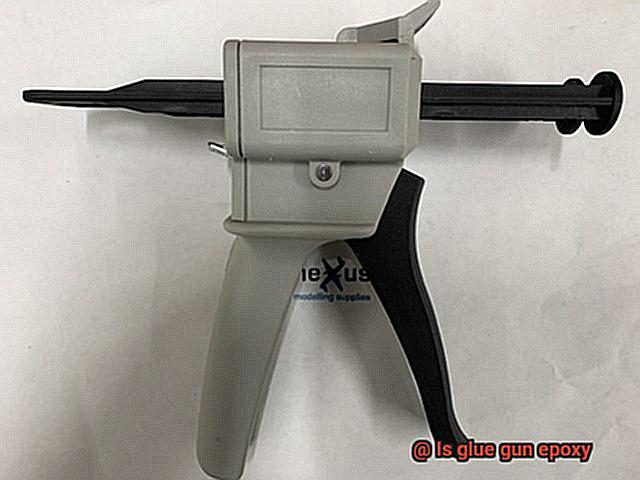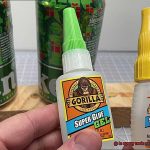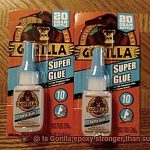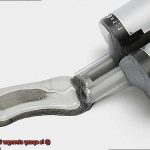Have you ever found yourself stuck in a sticky situation, trying to figure out which adhesive to use for your latest DIY project? Glue guns and epoxies are two popular options that come to mind. But here’s the million-dollar question that has been puzzling many DIY enthusiasts: is glue gun epoxy?
The answer is not as straightforward as you might think. While glue guns and epoxies are two distinct types of adhesives, there is some overlap between them. Glue gun glue can be considered a type of epoxy, but it’s not the same thing.
Epoxy is a heavyweight champion when it comes to bonding strength and durability. It requires mixing resin and hardener together to create a strong bond that can withstand high temperatures and chemicals. In contrast, glue guns use thermoplastic glues that come in solid sticks. These sticks are melted by the tool and applied as needed.
So what does this mean for your next project? If you need a quick fix that doesn’t require heavy-duty bonding power, then glue gun adhesive might be your best bet. However, if you need something that can handle extreme conditions or provide long-lasting results, then epoxy is the way to go.
Now that we’ve cleared up any confusion about whether glue gun is epoxy or not, you can confidently choose the right adhesive for your DIY needs. Stay tuned for more expert tips on our blog.
The Difference between Epoxy and Glue Gun
Contents
When it comes to bonding surfaces, there are a variety of adhesives available on the market. Two popular types of adhesives are epoxy and glue gun. Although the terms may be used interchangeably, they are not the same thing.
Epoxy is a two-part adhesive that consists of a resin and hardener. This powerful adhesive is known for its high-strength bond and durability, making it ideal for heavy-duty applications such as construction, woodworking, and automotive repair. Epoxy can bond materials such as metal, plastic, and wood with ease, making it a versatile adhesive.
In contrast, glue gun is a type of hot-melt adhesive that uses a glue stick. This type of adhesive is popular for its quick drying time and easy application process. Glue gun is commonly used for crafting, DIY projects, and household repairs. It is ideal for bonding lightweight materials such as paper, cardboard, and fabrics.
The main difference between epoxy and glue gun is their bonding strength. Epoxy provides a much stronger bond compared to glue gun due to its chemical composition. Epoxy can withstand high temperatures, pressure, and impact, making it suitable for heavy-duty applications. Glue gun, on the other hand, is not as strong as epoxy and is better suited for temporary or less demanding applications.
Another key difference between epoxy and glue gun is their curing time. Epoxy requires more time to cure than glue gun. Generally, epoxy takes several hours to dry completely while glue gun dries within seconds or minutes. This makes glue gun ideal for quick repairs or projects that require immediate results.
It is important to choose the right adhesive for your project based on the materials being bonded and the demands placed on the bond. If you are working on a heavy-duty application that requires a strong bond, epoxy may be the best choice. However, if you are working on a lightweight project that requires quick drying time and easy application process, glue gun may be the way to go.
Advantages of Using Epoxy
Look no further than epoxy, the two-part adhesive that packs a punch. Epoxy is known for its impressive strength, durability, and versatility.
When it comes to strength, epoxy is a clear winner. It can handle heavy-duty applications such as construction, woodworking, and automotive repair with ease. Plus, it creates a bond that lasts for years and is resistant to water, heat, and chemicals. This makes it the perfect adhesive for use in harsh environments where other adhesives may not be up to the task.
But that’s not all. Epoxy has the added benefit of being able to fill gaps and cracks. When mixed together, the two parts of epoxy form a thick paste that can fill in any imperfections in the surface being bonded. This unique feature makes it ideal for use in woodworking and construction projects where surfaces may not be perfectly smooth.
Now, let’s talk about glue guns. While they are convenient and easy to use, they simply cannot match the strength and durability of epoxy. Glue guns are great for quick and easy bonding of lightweight materials such as paper, cardboard, and fabric. However, they are not suitable for heavy-duty applications that require a long-lasting bond.
In summary, here are the advantages of using epoxy:
- Superior strength and durability
- Resistance to water, heat, and chemicals
- Ability to fill gaps and cracks
- Ideal for use in harsh environments
- Perfect for heavy-duty applications such as construction and woodworking
Advantages of Using a Glue Gun
As an expert in this field, I have compiled research notes to help you understand the advantages of using a glue gun.
One of the most significant advantages of using a glue gun is its versatility. These guns can bond a wide range of materials, including paper, fabric, wood, plastic, and even metal. From home repairs to crafting and industrial use, glue guns are the go-to tool for various applications.
Another advantage of using a glue gun is its quick bonding time. Unlike traditional adhesives that require ample time to dry and cure, glue guns can bond materials in seconds. This is particularly useful when working on time-sensitive projects or when dealing with materials that cannot withstand prolonged exposure to traditional adhesives.
Glue guns are also incredibly easy to use. Most models come with a simple trigger mechanism that dispenses the adhesive with ease. Additionally, they are relatively safe to use as they do not require any solvents or harsh chemicals that could pose a health risk.
When it comes to strength and durability, glue guns deliver exceptional results. The adhesive produced by glue guns is incredibly strong and can withstand high levels of stress and tension. This makes them an ideal choice for industrial applications where durability and strength are paramount.
Finally, glue guns are affordable and accessible to everyone from hobbyists to professionals. They come in various sizes and price ranges, making them widely available and suitable for every budget.
Disadvantages of Using Epoxy
Epoxy may seem like an ideal choice, but it’s important to weigh its disadvantages before diving in.
First and foremost, epoxy is toxic. The chemicals within the substance can cause skin irritation and respiratory problems if not handled with care. To avoid any health hazards, it’s crucial to wear protective gear such as gloves and a mask when working with epoxy.
Another significant drawback of epoxy is its sensitivity to temperature changes. Extreme hot or cold temperatures can cause the epoxy to expand or contract, which can weaken the bond or even cause it to break. This can pose a particular problem for outdoor applications where temperatures fluctuate frequently.
Epoxy also has a limited shelf life and can harden over time, rendering it unusable. If you only require a small amount of epoxy for your project, you may end up wasting a significant portion of the product.
Lastly, removing epoxy can be a daunting task. If an error occurs or you need to remove the bond for any reason, you may have to resort to harsh chemicals or sandpaper to get rid of the epoxy. This process can be time-consuming and potentially damage the surface that the epoxy was applied to.
Disadvantages of Using a Glue Gun
While glue guns are a popular and convenient tool for bonding materials, there are some potential drawbacks that users should keep in mind.
One of the main disadvantages of using a glue gun is the potential mess it can create. The hot glue can easily drip and spill, causing damage to surfaces or even burning skin. This can be especially frustrating when working with delicate materials that could easily be damaged by the hot glue. Cleaning up the hardened glue can also be a challenge, as it sets quickly and can be difficult to remove.
In addition to these issues, the strength of the bond created by a glue gun may not be suitable for all projects. While they work well for bonding lightweight materials such as paper or fabric, heavier materials like metal or wood may require a stronger adhesive. It’s important to consider the weight and durability of the materials being bonded before choosing a glue gun as your adhesive method.
Another potential disadvantage of using a glue gun is that it can be dangerous if not used properly. The high temperature of the glue can cause burns or injuries if it comes into contact with skin. It’s essential to use caution when handling a glue gun and to always keep it out of reach of children. Additionally, leaving a plugged-in glue gun unattended could pose a fire hazard.
Finally, because glue guns require electricity to operate, they may not be suitable for use in areas without access to an electrical outlet. This can limit their versatility and make them less convenient to use in certain situations.
Applications for Epoxy and Glue Guns
From construction to crafting, epoxy and glue guns have proven to be essential tools for various industries. Epoxy is a two-part adhesive system that creates a strong and durable bond when mixed together. Glue guns, on the other hand, use heated thermoplastic glue sticks to bond various materials together. Let’s explore the diverse applications of these adhesives.
Construction Industry:
Epoxy is a go-to adhesive for construction projects. It can bond concrete, metal, and wood structures together, making it ideal for high-stress situations such as attaching rebar to concrete or repairing a broken tile. Its strength and durability make it perfect for heavy-duty projects.
Automotive Industry:
In the automotive industry, epoxy is commonly used to bond various parts of vehicles together. Its ability to withstand high temperatures and vibrations makes it ideal for this application. Epoxy is also used to repair dents and chips in car bodywork.
Electronics Industry:
Epoxy is also used in the electronics industry to encapsulate delicate electronic components that need protection from moisture, dust, and other environmental factors. It is also used to bond circuit boards and other electronic components together. Epoxy’s ability to conduct heat makes it perfect for heat sinks.
Crafting Industry:
Glue guns are a staple in the crafting industry. They are popularly used in scrapbooking, card making, and DIY home decor projects. Their versatility allows them to bond various materials such as wood, plastic, metal, and fabric together. Glue guns provide quick and easy bonding solutions for both personal and commercial crafting projects.
Packaging Industry:
Glue guns are also widely used in packaging and shipping industries to seal boxes and packages securely. The hot melt adhesive provides a strong bond that can withstand the wear and tear of transportation.
How to Choose the Right Adhesive for Your Project
When it comes to DIY projects, choosing the right adhesive can make all the difference. But with so many options available, it can be overwhelming to know where to start. In this guide, we’ll break down the process into five easy-to-follow steps to help you choose the perfect adhesive for your project.
Step 1: Consider the Materials Being Bonded
The first step in choosing the right adhesive is to consider the materials that you’ll be bonding together. Different adhesives work best with different materials. For example, if you’re bonding paper or cardboard, a PVA glue would be ideal. If you’re bonding metal or plastic, an epoxy adhesive may be more suitable.
Step 2: Determine the Strength of the Bond Needed
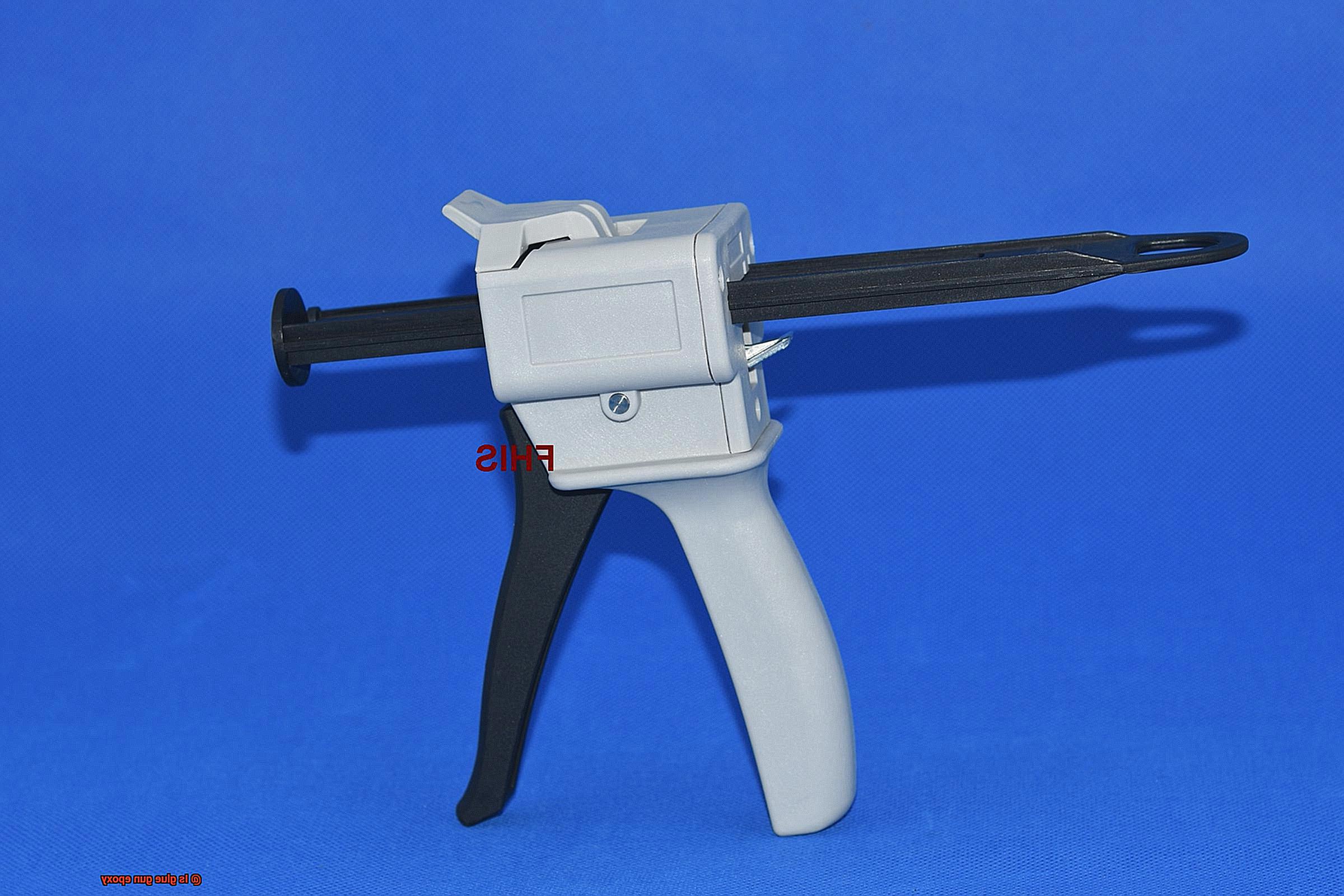
Next, consider the strength of the bond you need. Some adhesives are designed for temporary bonding while others are meant for permanent bonding. If you need a strong, long-lasting bond, choose an adhesive that is specifically designed for that purpose. For example, if you’re repairing a broken ceramic vase, a super glue would create a strong bond that lasts.
Step 3: Consider Environmental Factors
Environmental factors such as temperature and humidity can impact the effectiveness of certain adhesives. Some may not hold up well in extreme temperatures or in wet environments. Make sure to choose an adhesive that is suitable for the conditions in which your project will be used.
For example, if you’re repairing a boat or outdoor furniture, make sure to choose an adhesive that is waterproof and weather-resistant.
Step 4: Choose the Right Application Method
The application method is another important consideration when choosing an adhesive. Some adhesives come in a spray form, while others are applied with a brush or nozzle. Glue guns are another popular adhesive application method and can be used with a variety of different types of glue sticks, including epoxy. Consider the size and shape of the surfaces you’ll be bonding together to choose the right application method.
Step 5: Safety Precautions
Last but not least, consider any safety precautions necessary when working with certain types of adhesives. Some may emit harmful fumes or require special handling, so be sure to read the instructions carefully before use. Wear gloves or goggles if necessary and work in a well-ventilated area.
B3KOhCK_BZs” >
Also Read: Best Glue for Legos
Conclusion
In summary, the question of whether glue gun adhesive is the same as epoxy has been answered. Although they are two distinct types of adhesives, there are some similarities between them.
While glue gun adhesive can be classified as a form of epoxy, it lacks the strength and durability of traditional epoxy. Epoxy is renowned for its high-strength bond and resilience, making it an excellent choice for heavy-duty applications such as construction, woodworking, and automotive repair.
Meanwhile, glue guns are popular for their speedy drying time and user-friendly application process, making them ideal for lightweight materials like paper, cardboard, and fabrics.
When selecting the appropriate adhesive for your project, several factors must be considered. These include the materials being bonded, the required bond strength, environmental conditions such as temperature and humidity, application method, and safety precautions needed when working with certain adhesives.
With these considerations in mind, you can confidently choose the best adhesive that will provide long-lasting results for your DIY project. Whether you decide to use epoxy or glue gun adhesive depends on your specific needs and demands placed on the bond.
In conclusion, while both adhesives have their advantages and disadvantages depending on your project’s requirements, it is essential to choose wisely to ensure a strong bond that lasts over time.

